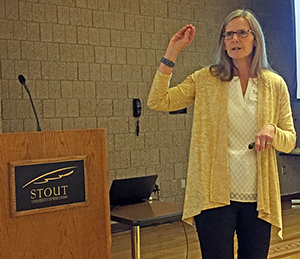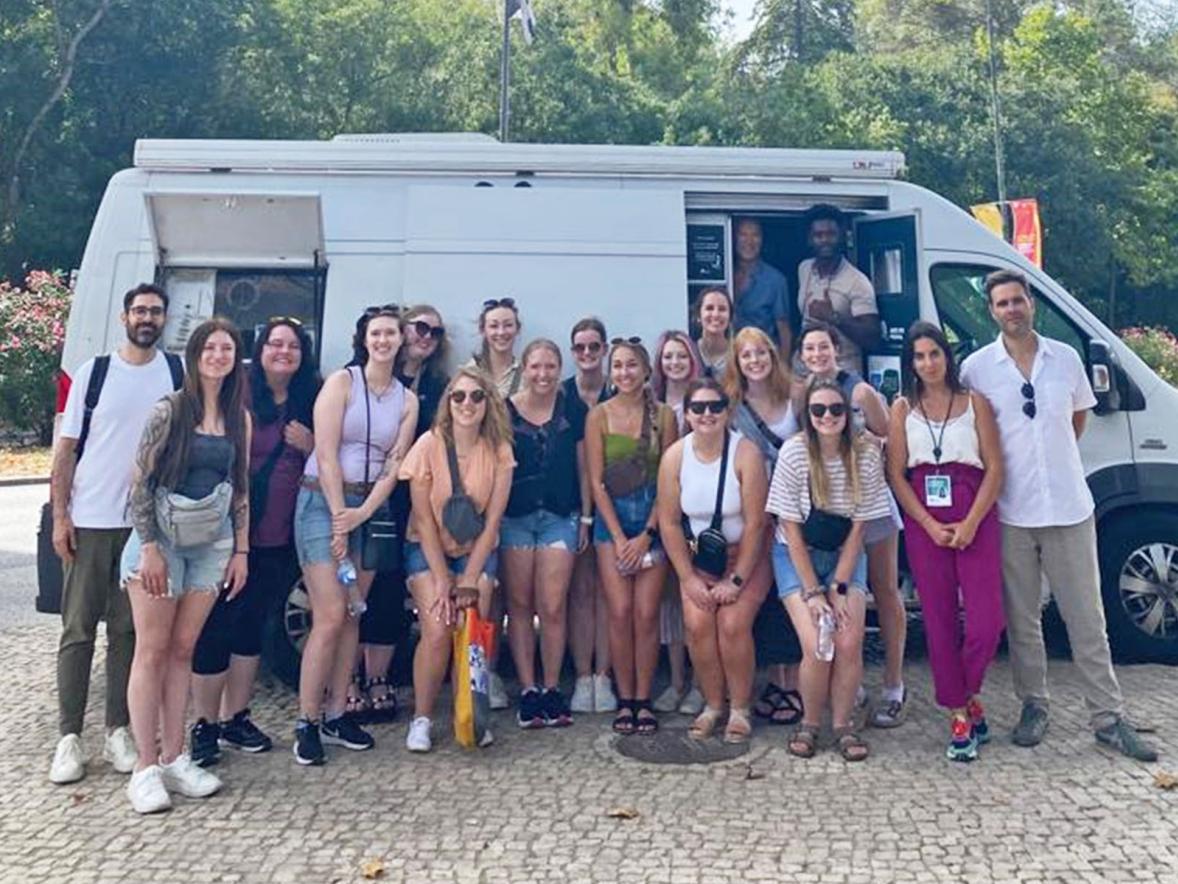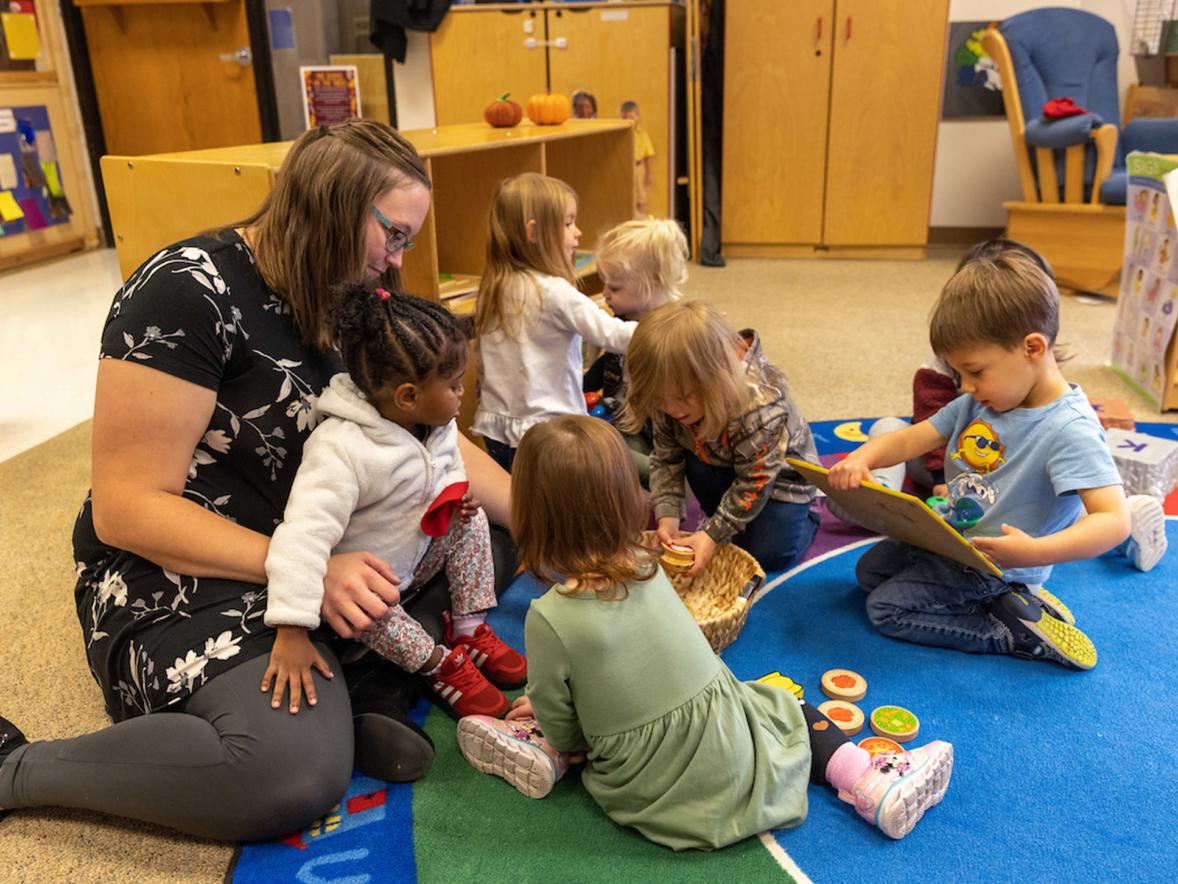When children have suffered childhood traumas their brains don’t care about math, they are just trying to survive.
The K-12 Healthy Minds Summit held at University of Wisconsin-Stout July 1 focused on fostering emotional health and resiliency in schools. About 75 people attended. It was the first program of the Initiative to Create the UW-Stout Center for the Study and Promotion of Health and Wellbeing.
The two speakers were spouses John Klem, professor and program director of the clinical mental health counseling program, and Tonya Klem, school psychologist for the Ellsworth Community School District and owner of K12 Psychoeducational Services.
“Trauma is one of those words getting thrown out a lot lately,” John Klem said. “All of us have had bad things happen. When it becomes trauma is up to the client to decide. Perceptions matter greatly. It’s very individual specific.”
Childhood traumas can include child abuse, neglect and violence. According to statistics:
- 60% of adults report experiencing abuse or other family dysfunction.
- 26% of children will witness a traumatic event before the age of 4.
- 1 in 10 children will be sexually abused before the age of 18; 1 in 5 to 1 in 7 of girls will be sexually abused by 18.
Adverse childhood experiences are linked to risky health behaviors, chronic health conditions and low life potential.
In adverse childhood experiences, babies’ needs are not met, and the hormones created change the way their brains are wired making them more inclined to fight, flee or freeze when they are triggered into an emotional response. Those triggers happen more often and at a deeper level, John Klem said.
“We know trauma changes the physical brain,” Tonya Klem said. “The first three years is the most susceptible and has the most influence on changing the brain structure.”
Children who have a nurturing, supportive adult in their lives can develop resiliency. Having someone greet students by name, who know them, and offer a safe and predictable environment helps.
It is essential that educators practice self-care and have insight into their own emotional triggers, so they can respond rather than react to students with adverse childhood experiences.
When children are frustrated and exchanges occur, Tonya Klem suggested teachers remain calm, create an environment of respect, listen and reflect on what children are saying and use kindness when delivering hard to hear news.
“Give the students a voice,” Tonya Klem said. “Treat them like they are important. Let them be seen and heard.”
Cristy Linse, the director of the initiative, said part of the summit was to help educators learn how adverse childhood experiences impact schools and how to cope. “Together we can strive to decrease the stigma and increase empathy,” Linse said. “We can impact mental health and the people in our community.”
 On Tuesday, July 16, the 2019 Dunn County Health Needs Assessment will be revealed at the UW-Stout Memorial Student Center to help create a County Health Improvement Plan at UW-Stout during the Health Dunn Right conference.
On Tuesday, July 16, the 2019 Dunn County Health Needs Assessment will be revealed at the UW-Stout Memorial Student Center to help create a County Health Improvement Plan at UW-Stout during the Health Dunn Right conference.
The health assessment results and community input will be used to create a County Health Improvement Plan. Other conference sessions will focus on how to strengthen coalition capacity, guide attendees on how to build community leadership, develop active participation skills and energize collective action.
Lauri Badura of Oconomowoc and Deb Clarke are the conference keynote speakers.
Badura will address drug addiction and its relationship with mental health and her grassroots organization, Saving Others For Archie. She started SOFA in memory of her first son, Archie, 19, who died from a heroin overdose in 2014. She will address how such organizations can positively impact a community. SOFA also focuses on treating mental illness.
Clarke, a leadership and organizational development trainer for Chippewa Valley Technical College, will talk on dynamic team building specific to how accountability can be achieved among team members in a community coalition.
Healthy Minds at 65+ is another free conference open to all on Wednesday, Aug. 14 at the Memorial Student Center. Amanda Barnett, UW-Stout associate professor human development and family studies, and Linse will be co-facilitating the session on the benefits of developing and maintaining a growth mindset and learning how to use storytelling as one tool for developing and maintaining a growth mindset as people age.
UW-Stout is Wisconsin’s Polytechnic University, with a focus on applied learning, collaboration with business and industry, and career outcomes.
###
Photos
Tonya Klem, school psychologist for the Ellsworth Community School District and owner of K12 Psychoeducational Services, notes imaginary play, games and sports can help improve executive functions in children.
Health Dunn Right logo







